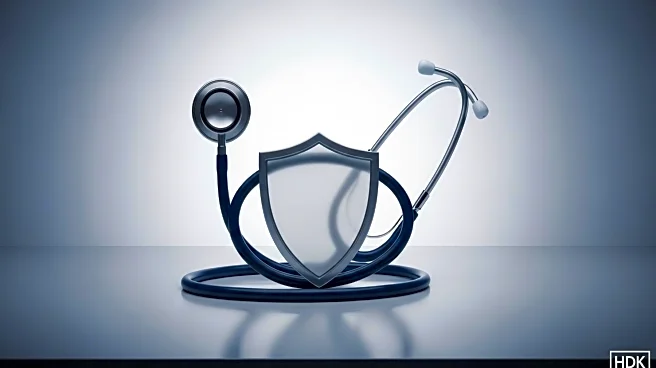What is the story about?
What's Happening?
Six former U.S. surgeons general have issued a joint statement warning that the actions and policies of Health and Human Services Secretary Robert F. Kennedy Jr. pose a significant threat to public health. The group, which includes appointees from both Republican and Democratic administrations since George H.W. Bush, expressed concern over Kennedy's undermining of the nation's public health system. They highlighted his promotion of misinformation regarding vaccines, including the discredited theory linking childhood vaccines to autism, and his recent actions such as replacing the Advisory Committee on Immunization Practices with individuals lacking scientific qualifications. The former surgeons general emphasized the importance of science-based leadership in HHS, which oversees critical health programs like Medicare and the CDC.
Why It's Important?
The warning from the former surgeons general underscores the potential impact of Kennedy's policies on public health and safety. By promoting misinformation and sidelining scientific expertise, Kennedy's actions could lead to increased disease outbreaks and a loss of public trust in health institutions. This is particularly concerning given the role of HHS in managing health crises and ensuring the safety and effectiveness of medical interventions. The erosion of scientific integrity within HHS could have long-term consequences for the nation's health, economic resilience, and international credibility. The statement calls for leadership that prioritizes scientific evidence and transparency to protect the health of all Americans.
What's Next?
The former surgeons general's statement may prompt further scrutiny of Kennedy's leadership and policies at HHS. It could lead to calls for reform within the department to restore scientific integrity and public trust. Stakeholders, including health organizations and policymakers, may push for changes to ensure that public health decisions are grounded in evidence-based practices. The ongoing debate over vaccine safety and misinformation may also intensify, with potential implications for public health policy and education efforts aimed at combating misinformation.
Beyond the Headlines
The situation highlights broader issues of misinformation and its impact on public health. Kennedy's actions reflect a growing trend of ideology overshadowing scientific evidence, which can undermine efforts to address health challenges effectively. The statement from the former surgeons general serves as a reminder of the critical role of science in public health decision-making and the need for leaders who respect and uphold scientific principles. The erosion of trust in health institutions could have lasting effects on public health initiatives and the ability to respond to future health crises.
















